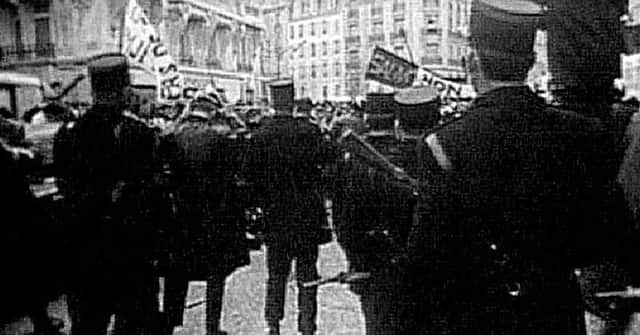Edinburgh Book Festival: Revolutions and revelations, poetry and protests


BBC journalist James Naughtie addressed this question at the Book Festival yesterday, greatly aided by Neal Ascherson who – as central European correspondent for The Observer at the time – witnessed many of the events in Europe first hand. Ascherson was a guest at the festival on Saturday talking about his own novel, but this event provided a welcome opportunity to benefit from his experience as a veteran journalist and commentator.
He described how the “petty grievances” of Parisian students – complaints about curriculum and rules which prevented male students overnighting in female dormitories – “ignited a whole undergrowth of feelings about the freedom of ordinary human beings and what kind of Europe we want to live in”. Protests spilled out of the university on to the streets where they were savagely crushed by the state, but not before Charles de Gaulle became so worried that he fled the country to take refuge with French troops in Germany.
Advertisement
Hide AdAdvertisement
Hide AdEvents were not restricted to Paris, of course. Protests also happened in Germany, Poland, and in London (which, strangely, was not mentioned at all). In the US, the same summer brought the assassinations of Martin Luther King and Bobby Kennedy, and in Czechoslovakia, the Prague Spring, an attempt to reform Communism from within, which was violently crushed by troops from the Soviet Union.
Having witnessed the events in Paris, including the savage beating of students by riot police, and having helped one person he knew, who was badly wounded by a blast grenade, to flee the country, Ascherson said he doubted the French claim that no one died in the 1968 riots. Yet, for the most part, the atmosphere on the streets was one of optimism and confidence. The French, he said, have “retained in their DNA the possibility of revolution”, and still do, even if it is subconscious.
He described the “intoxicating” sensation of seeing institutions and structures wobble, “like looking at the Pentland Hills and realising that they were scenery made of cardboard”, and said that, although the revolution was crushed inside a month, it still had lasting effects.
“It scared the pants off all the existing establishments, and led to a wave of different reforms across different countries. I look back on it as a moment of revelation as much as revolution. Did it change anything fundamentally, drastically? No. Did it leave behind a changed consciousness of how human beings want to relate to each other? Yes, and that endured, even through the Thatcher and Reagan years.”
The day had begun with two poets, Kathrine Sowerby and David Harsent, both reading from new books, and talking about the poet’s art. Harsent, the author of some 11 collections, is articulate and fascinating on the subject of poetry, describing the endless quest for “precisely the right word, or sequence of words” which will “build a little timebomb”. One of the words he particularly dislikes is “meaning”: “I don’t think poetry has to be, or should even try to be, lucid. It’s possible to have a significant emotional reaction to a poem without even fully understanding it.”
The poets were followed by two novelists, Gabriel Josipovici and Malachy Tallack, whose new books are very different yet nonetheless share a quality of contemplative slowness. Tallack’s novel, The Valley at the Centre of the World, is a description of a small crofting community on Shetland, following the seasons and the rhythms of the farming year, while the protagonist of Josipovici’s The Cemetery in Barnes is a widower living in Paris whose life is a carefully measured in a self- protective network of routines.
It was a shout-out – if a quiet one – for slow art in a world in which fictional depictions of life are often as fast-paced as the real thing.